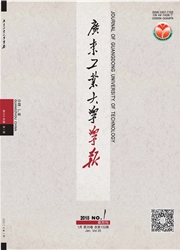

 中文摘要:
中文摘要:
研究含迁入、生育、死亡、垂直传播以及隔离干预情形下的变种群量SIRS型传染病模型及其控制策略.依据无病平衡点的全局渐近稳定性条件,得到优先强化隔离染病个体、限制易感群体流动与控制疾病垂直传播以及折衷考虑人道主义与无条件救治代价的传染病综合控制策略;数值仿真验证了策略的有效性.
 英文摘要:
英文摘要:
A SIRS infectious disease model with immigration, birth and death, vertical transmission, arid isolation, is studied. According to the global asymptotical stability conditions of the disease-free equilibrium, the integrated strategy for controlling the disease--first isolating the infected individuals, then limiting the liquidity of the susceptible and controlling the vertical transmission, and at last making a tradeoff between annihilating the disease with no terms and the underlying expenses before taking any measures, is derived. Finally, the effectiveness of the controlling strategy is validated by the numerical simulations.
 同期刊论文项目
同期刊论文项目
 同项目期刊论文
同项目期刊论文
 期刊信息
期刊信息
